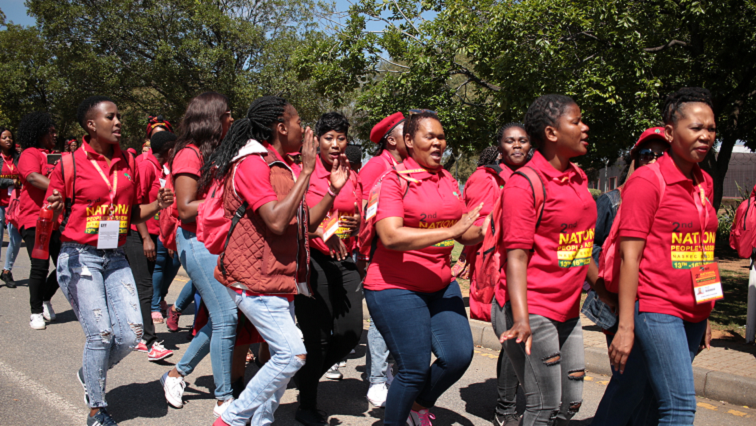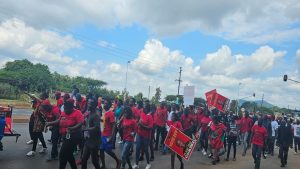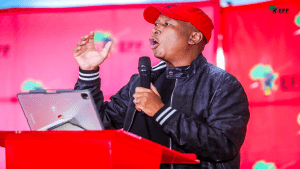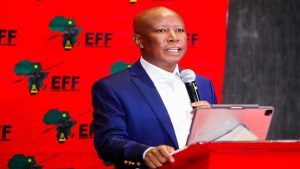As South Africa prepares to commemorate Day of Reconciliation on the 16th, racism has yet again reared its ugly head. Social media has been abuzz with a video of a Limpopo teen using the K-word. The video led to the EFF marching to Hoerskool Ben Voster in Tzaneen to demand that the teen be expelled from school.
Almost 30 years into democracy, the video has also brought to the fore questions around the socialization of children born after democracy. The small town of Tzaneen this week saw a hive of activity. A march by members of the EFF in the streets brought traffic to a halt in some of the town’s busy streets. The party demanded that this grade 9 learner be expelled from school. This after he used the K-word to refer to a black person in a social media live video. The EFF believes some members of society are not teaching their children to embrace each other’s diversity.
“In this time of democracy to have a child in grade 9 who will then call those words, if it was an elderly person I would understand that he had been taught some years ago, but when the white people were calling black people with those names he was not born as yet. So this is a clear indication that apartheid is not yet gone in South Africa, we still have some elements and pockets of areas in the country where people are still teaching children these kinds of things,” says Simon Mangena, EFF regional chairperson.
Reconciliation Day was first celebrated in 1995. The public holiday aims to foster reconciliation and national unity. Its origins commemorate the victory of the Voortrekkers against the Zulu nation during the Battle of the Blood River on December 16th 1838. December 16th later gained significance as the day the ANC’s military wing, Umkhonto we Sizwe was formed to fight apartheid. On the streets of Tzaneen, SABC News asked South Africans who were born during democracy what the public holiday means to them.
“It’s usually a public holiday, we just celebrate but I think it was something for the Voortrekkers but nobody really talks about it you just know it’s a public holiday now,” says Sherry Spaumer.
“I don’t know much but I have heard of it on the radio and in history books,” says Pretty Bilankulu.
The Human Rights Commission believes it is important to ensure that the next generation of South Africans embrace each other.
“Reconciliation is not an event, it’s a process so if it was an event we would have had it maybe in 1994 there. We reconcile, we are done, we move forward but because we know that people will still have this deep-seated anger against each other, what we need to do is to make sure that we have this from time to time. You will agree with me that the incidents that are occurring now are very painful because now we are tending to forget where we come from gradually. We are moving to a non-racial society where there is no discrimination based on race or colour so we will feel pain because it happens when we are not,” says Victor Mavhidula from the South African Human Rights Commission.
Two born-frees from Tzaneen believe the video shows that the country needs to go back to the drawing board to find new ways to foster reconciliation.
The EFF has also laid a criminal charge of racism against the teenager.






